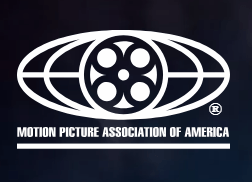 At the turn of the century, downloading movies and TV shows from the Internet wasn’t a particularly attractive proposition. The process was cumbersome and content availability was poor.
At the turn of the century, downloading movies and TV shows from the Internet wasn’t a particularly attractive proposition. The process was cumbersome and content availability was poor.
Early peer-to-peer file-sharing applications gave the activity increased exposure, with multi-source downloading improving speeds for a growing audience. However, when BitTorrent came along and gained traction around 2003, the phenomenon exploded.
While tens of millions of torrent users are still active on a daily basis today, another type of unauthorized content delivery is grabbing most of the headlines. Video streaming, which has been going from strength to strength over the past eight years and more, is now perceived as the greatest threat to Hollywood.
Torrents have a relatively steep learning curve but streaming does not. If a person can operate Netflix, he can also use a pirate streaming website. The process is made even more simple with the latest desktop and mobile applications, which are so intuitive a child can use them – and many do.
Lobbying registration documents recently filed with Congress indicate that the MPAA is taking the threat very seriously. First reported by O’Dwyer PR, they reveal that the Hollywood group has hired Fort Lauderdale-based law firm Becker & Poliakoff to take the battle against piracy to Capitol Hill.
Filed as required under the Lobbying Disclosure Act of 1995, the documents reveal a two-person team representing the MPAA’s interests.
They are Senior Corporate & Government Relations Director Bert Gómez, who opened TV broadcaster Univision’s Washington government relations office and has 25 years of lobbying under his belt. And Omar Franco, the Managing Director of Becker’s Washington, D.C. office, who previously acted as Chief of Staff for Congressman Mario Diaz-Balart.
The disclosure sums up the MPAA’s aims in a short paragraph. The lobbyists will tackle copyright policy on Capitol Hill, with an emphasis on “streaming piracy devices and applications” and the “economic impact of film industry production.”

Today’s buzzing ‘market’ for online streaming devices and applications will give Gómez and Franco plenty to discuss. In addition to the now ubiquitous Kodi and the swarm of third-party addons flooding its ecosystem, mainly Android-based applications are causing headaches for all of the studios.
Tools such as Terrarium TV and Showbox are becoming household names, with these and similar tools often pre-loaded onto set-top boxes to provide an accessible and entirely free Netflix-like experience to everyday consumers.
Unlike Netflix, however, these types of applications grant access to all content – no matter how new – meaning that first-run movies are regularly available during week one, something which famously causes a red mist to descend upon studios bosses everywhere.
As the leading force behind the Alliance for Creativity and Entertainment (ACE), the MPAA has already shown it has illegal streaming firmly in its sights.
The thirty-company global coalition, which also features Amazon, Netflix, CBS, HBO, BBC, Sky, Bell Canada, CBS, Hulu, Lionsgate, Foxtel, and Village Roadshow, is currently engaged in legal action against various players in the illicit streaming sector.
Set-top box sellers such as SET TV and Tickbox have already found themselves in court, while various Kodi addon developers have quit following legal threats. However, this is just the tip of a massive iceberg that will take years to melt, even if the MPAA massively turns up the heat.





